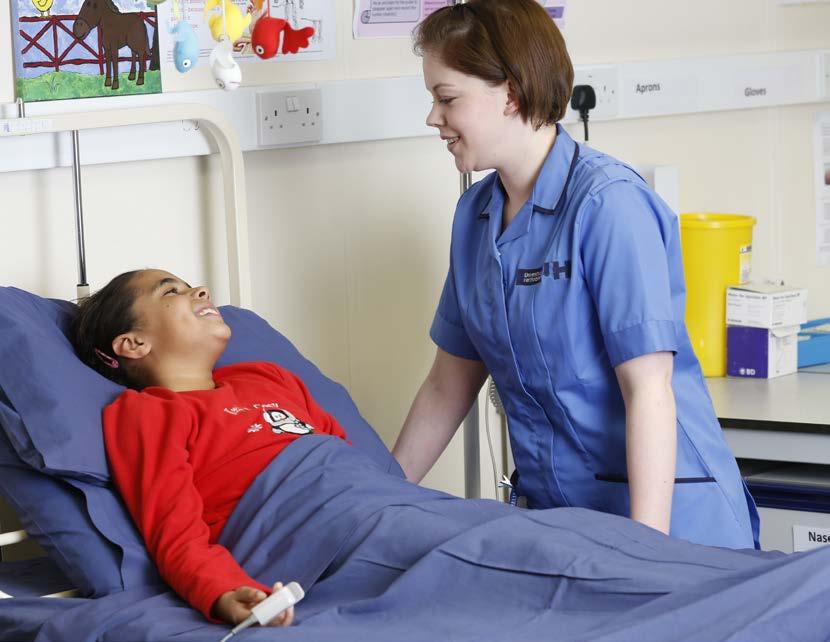POWERING POTENTIAL
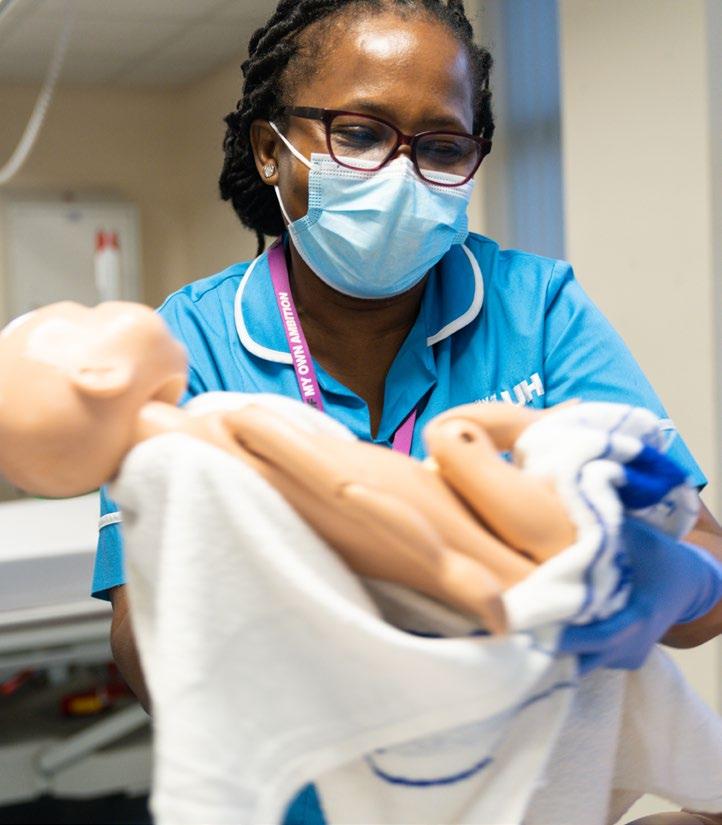
Our vision is to transform lives, and power the potential of not just our students and staff, but our wider community. Our students graduate with excellent skills aligned with the needs of employers and industry, enhancing their career prospects. We co-design, implement and grow business ideas and ventures, making our expertise accessible to market and powering businesses across the region.
Professor Quintin McKellar CBE Vice-Chancellor
Ranked among the top 10% of Universities for local growth and regeneration Research England
Ranked 16th in England for social mobility impact
Institute for Fiscal Studies 2021
We jumped 12 places in the 2023 Complete University Guide league table, and climbed 16 places to 74th in the 2023 Guardian University Guide
Welcome to the University 4 Our history 6 Executive team 8 Our vision and strategic plan 10 Education and student experience 12 Research 13 Enterprise 14 Global engagement 15 School of Health and Social Work 16 3 One of 17 universities awarded the Race Equality Charter Mark Ranked in the top ten in all areas of the survey Postgraduate Taught Experience Survey 2022 One of only 20 universities awarded University Enterprise Zone status 90% of our research has been judged as ‘internationally excellent’ or ‘world leading’ Research Excellence Framework 2021
Contents
Welcome to the University of Hertfordshire
Set across two campuses and our Bayfordbury Observatory, we’re just 20 miles from London.
As an innovative, enterprising university, focused on transforming lives, we care about our staff and students and provide them with the opportunity to succeed no matter what their background.

4 Powering Potential
With our heritage in Britain’s pioneering aeronautical industry, we have been an innovative force in education since the early 1950s, and our focus on students’ employability and transferable skills can be traced back to our aeronautical origins.
We drive economic growth through cutting-edge research, creative and innovative thinking, skills development, bespoke training, and facilities that help businesses achieve their potential. All of our activities are underpinned by our core values; we are friendly, ambitious, collegiate, enterprising, and student-focused in everything we do.
We have just under 32,000 students studying over 550 undergraduate, postgraduate and research degrees in the UK. We also have more than 6,500 students taking courses outside the UK through international partnerships and franchise arrangements.
Our teaching is delivered across seven academic schools: Creative Arts, Health and Social Work, Hertfordshire Business School, Hertfordshire Law School, Life and Medical Sciences, Physics, Engineering and Computer Science, and Social Sciences, Humanities and Education.
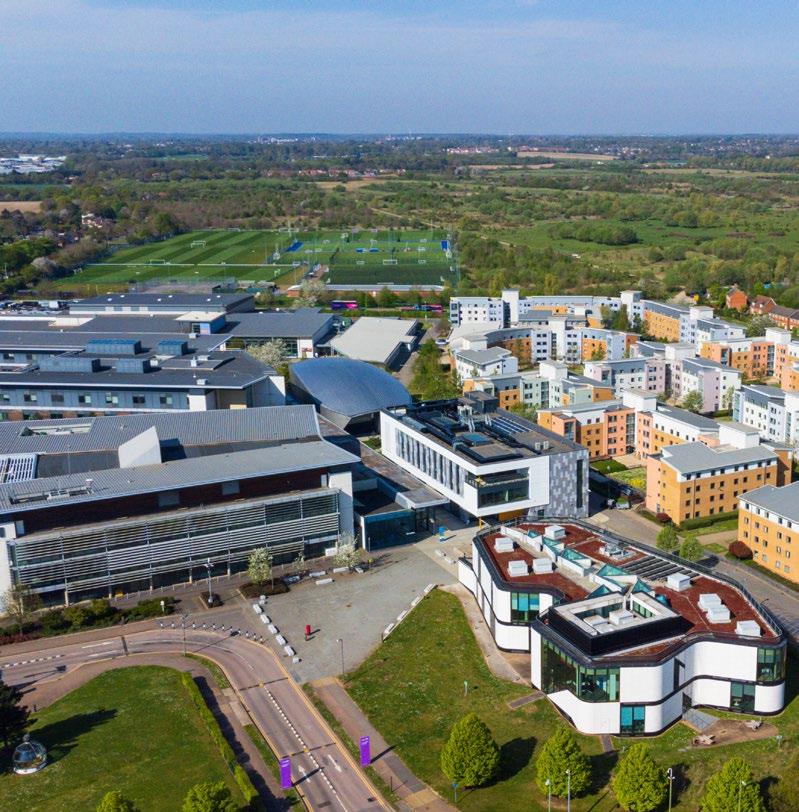
5
de Havilland Campus
Our history
19521959
Hatfield Technical College
1952 saw the opening of a new Technical College in Hatfield, with HRH Prince Phillip, Duke of Edinburgh performing the opening ceremony. With its roots in Britain’s pioneering aeronautical industry, the College soon established itself as an innovative force in education, awarding our first BSc (Engineering) qualifications to external students of the University of London in 1959.

19601968
Hatfield College of Technology
In 1960, the institution was renamed Hatfield College of Technology and began to invest in computer science, buying the College’s first digital computer in 1963 – a National Elliott 803B digital computer, at a cost of £24,010. In 1965, the college became recognised for 13 Honours Degree courses, including Computer Science and Civil Engineering, with BA (Hons) Business Studies coming a year later.
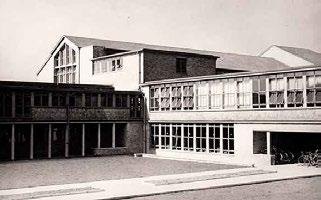
6 Powering Potential
19691991 1992 - Present
In 1969, the College was designated as Hatfield Polytechnic, and by 1970 had formed the best equipped and staffed Computer Centre in education. In 1975, the Polytechnic was reorganised into five schools of study and a centre for Management Studies.
Hatfield Polytechnic University of Hertfordshire
Hatfield Polytechnic became The University of Hertfordshire on 29 June 1992. In 2003 the de Havilland Campus, a £120 million project, was opened by HRH Prince Philip, the Duke of Edinburgh. In 2016, he visited the campus to open the £50 million Science Building. Our Enterprise Hub was opened in 2021. Today, we have a student community of just under 32,000 on UK based programmes across our campuses.
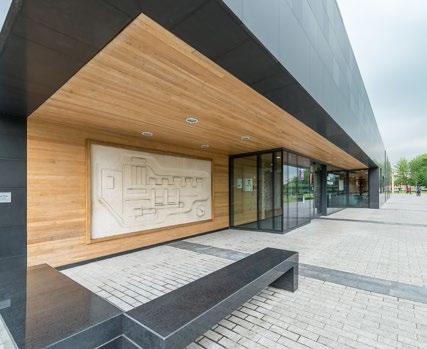
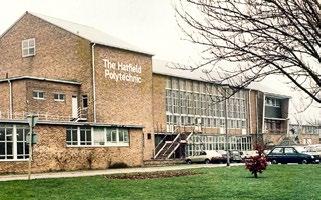
7
Executive team
As Chief Executive, the Vice-Chancellor exercises considerable influence upon the development of University strategy, the identification and planning of new development and the shaping of the University ethos. The executive team – the Deputy Vice-Chancellor, Secretary and Registrar, Executive Director for Business, International, Marketing and Recruitment, Pro Vice-Chancellor Education and Student Experience, Pro Vice-Chancellor Research and Enterprise, and the Group Finance Director all contribute to this aspect of work.
Professor Quintin McKellar CBE Vice-Chancellor and Chief Executive

Quintin has been the Vice-Chancellor and Chief Executive of the University since 2011. His responsibilities include the day-to-day running of the institution, the delivery of strategic and operational plans, performance, its internal structure and organisation, and its interface with external bodies and agencies. In 2015 he was elected as a Board member of Universities UK (UUK), and in 2020 was elected as UUK Vice-President (England and Northern Ireland). In 2021 he was elected as a Board member of Advance HE. He was made Commander of the Order of the British Empire (CBE) in 2011 for services to science.
Professor Julie Newlan MBE Deputy Vice-Chancellor

Julie was appointed Deputy Vice-Chancellor in February 2022. She was previously Pro Vice-Chancellor for Business and International Development. She is engaged in all strategic and operational decisions which underpin the positioning and success of the University, and will be leading the University’s strategic plan.
Julie has overall responsibility for University planning, including the development of all academic areas through the respective deans, staff development, international and regional partnerships and developments, recruitment, induction and retention of students, student experience and student outcomes.
Sharon Harrison-Barker Secretary and Registrar

Sharon was appointed in January 2020. She was previously the Academic Registrar, Head of the Student Centre and Faculty Registrar for the Business School and has worked in various further and higher education institutions. She achieved an MBA in Higher Education Management from the University of London in 2010.
Sharon is responsible for the management and operation of the Board of Governors and the Academic Board, compliance with University policies, regulations and procedures, legal matters of the University and its wholly owned subsidiaries, health and safety, internal audit, equality, registry, human resources, library and computing services, the office of the dean of students and professional staffing.
8 Powering Potential
Jo Stuart Executive Director for Business,

International, Marketing and Recruitment
Jo was appointed in March 2022, and oversees the work of Marketing Communications, Business Development, and the International Office. She joined the University in 2018 as the Director of Marketing and Communications and over the last four years, Jo has worked tirelessly to transform the University’s marketing and communications function by embedding insight and data-led decision-making across all marketing and communications activities.
Jo previously worked in the Financial Services sector, bringing with her 20 years’ experience in senior leadership roles across product development, marketing, communications and sales.

Dr Mairi Watson Pro Vice-Chancellor (Education and Student Experience)

Mairi joined the University in May 2020 as Pro Vice-Chancellor Education and Student Experience. She leads strategy and performance, as well as policy development and delivery, in learning and teaching, student experience, quality assurance and student union relationships. Mairi is a Chartered Fellow of the Chartered Management Institute and regularly contributes to external events on the leadership of educational change in challenging contexts.
Professor John Senior Pro Vice-Chancellor (Research and Enterprise)
Appointed in 2006, John is responsible for leading University research and the delivery of research degrees, chairing the University Research Committee, developing international research partnerships in Australia, China, Malaysia, and Vietnam, and overseeing the Doctoral College, which is a community of more than 700 research degree students.
From 2003 to 2006 John was the University Director of Enterprise and Knowledge Transfer as well as being a Dean of Faculty. He has an international research profile in the field of optical fibre communications and networking, is on the Executive Committee of the Engineering Professors Council and chairs the Research and Enterprise Network for Universities (RENU).
Alistair Moffat
Group Finance Director
After a career in senior positions in the transport industry, Alistair was appointed Group Finance Director in 2009. He has responsibility for all aspects of financial management within the University Group, including financial control, statutory reporting, treasury, tax, insurance, procurement and commercial financial support for the academic community.

His role incorporates Board responsibility for the management of the University's estate and sport. He is a director of UH Holdings Limited, which oversees the commercial subsidiaries in the Group, and is a director of our subsidiary companies.
Alistair was joint chair of the London and South-East British Universities Finance Directors’ Group (BUFDG) from 2016-2021.
9

10 Powering Potential
Our vision and strategic plan
Our vision to transform lives reflects the ambition and inspiration that is central to the University. It is built on the belief that whatever your background, wherever you are from, higher education can be a transformational experience. And whoever you are, the application of university research can impact your life. We are committed to having a positive transformational impact on every member of our University community.
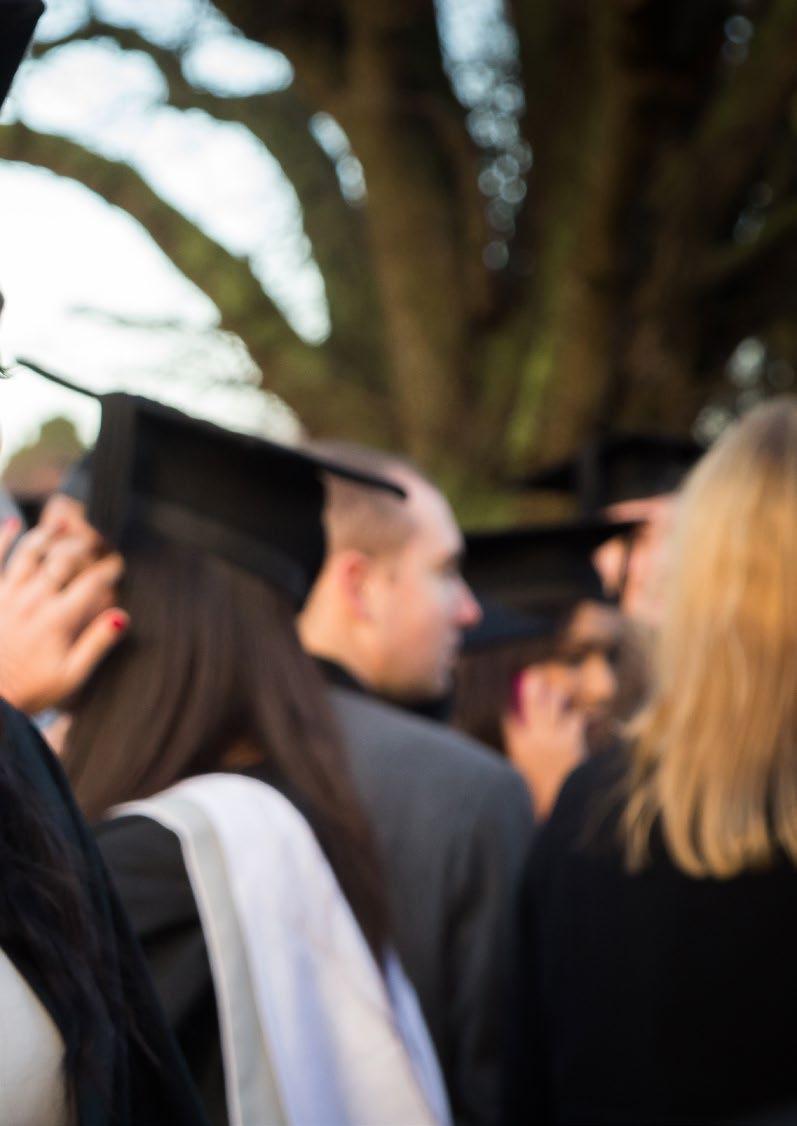
Students and staff contributed to the development of our strategic plan which informed our focus on transforming lives. It reflects the values of ambition and inspiration that are central to the University. Our three key themes of opportunity, community and flexibility also grew out of this engagement and reflect both what is important to the University, but also how we will approach challenges in the coming years.
The 2020-2025 strategy builds on our strengths and embeds our focus on employability, enterprise, and business partnerships. It looks at future challenges – modern technologies, the changing world of work, and increasing interconnectivity across the globe – all areas our students presented to us in 2018 as future challenges.
Scan or click below to find out more about our strategic plan go.herts.ac.uk/strategic-plan

11
Education and student experience
We deliver high-quality and distinctive education that transforms lives by providing opportunities to develop students’ skills for life, working in partnership with our student community, and delivering flexible education with clear career pathways.
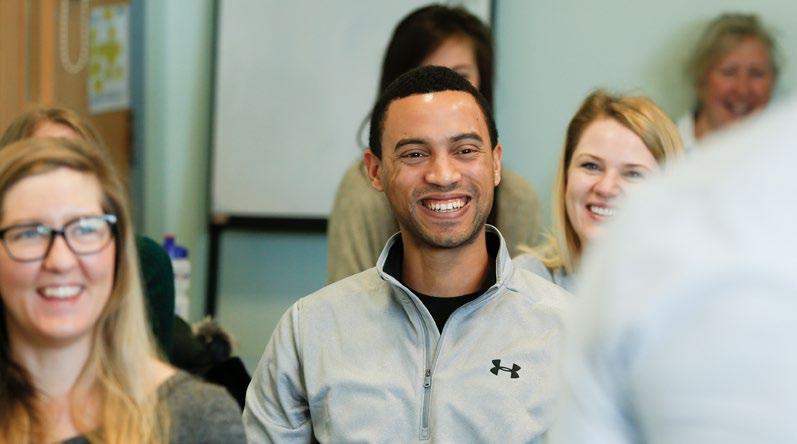
We do this through the expertise of our academic staff who design and deliver our courses. More than 70% of our staff hold professional recognition through Fellowships of the Higher Education Academy in teaching and learning compared to 54% across the sector.
We are proud of our 14 Principal Fellows and 80 Senior Fellows of the HEA, and our 10 National Teaching Fellows and 22 Professors and Associate Professors in Teaching and Learning.
Our Widening Access work targets primary- and secondary-aged learners, while our Student Success work supports learners currently studying at the University. Students are selected based upon where the data indicates gaps in equality of opportunity in relation to access, success or progression.
We are proud of our strong record in increasing access and participation at Herts. This is evident in our student population and the proportion of students from underrepresented backgrounds.
“ I had such a wide variety of placements – they were all so different! My mentors were lovely, and the classes were great. I think my favourite thing though was the change I felt between my first and last placements. When I was standing in front of the whole class, teaching lessons I had planned myself, feeling confident in a way I couldn’t have imagined during my first placement – that was amazing! ”
Rebecca Shelford BEd (Hons) Primary, 2021
12 Powering Potential
Research
Our research transforms lives and addresses fundamental global and societal challenges.
The University has made the biggest jump in research impact results across the higher education sector, according to the recent 2021 Research Excellence Framework (REF) assessment released in May 2022.
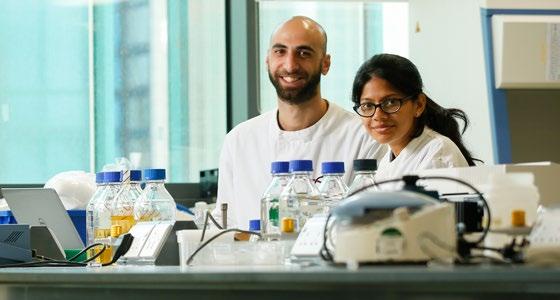
We are ranked in the top 25% nationally at 32nd, the highest position for a post-92 university, and a huge rise of 61 places compared to the previous REF in 2014, the biggest rise of any university.
Held every 6-7 years, REF is a nationwide assessment of the quality and impact of research at UK higher education institutions, based on evidence submissions that detail research outputs, real-world impact and benefits, and the institution’s research environment.
Research culture at the University is defined by a strong spirit of enquiry, innovation and enterprise, and feeds into teaching and learning to enrich our students’ experience.
We collaborate on inter-disciplinary projects not only with our colleagues, but also with international agencies, industry, the public sector, and other universities around the world. Our partnerships always have the shared aim of improving people’s lives.
From monitoring air quality to protect public health, to enhancing health in care homes and communities during the pandemic, our research has impact.
The work of an expert team of researchers from the University of Hertfordshire has been used to fundamentally improve how care homes and the NHS work together. By the end of 2020, the national Framework for Enhanced Health in Care Homes had been rolled out nationally to cover around 11,300 care homes and 410,000 care home residents.
Scan or click below to find out how our
go.herts.ac.uk/herts-research

13
amazing research makes a difference to people’s lives
Highlighting the real-world benefits to wider society, 90% of our research was classified as having ‘outstanding’ (4*) or ‘very considerable’ (3*) impact. In certain subject areas this was even higher, with Psychology obtaining a 100% 4* research impact rating.
Enterprise
The University is an institution with enterprise at its core. Within our University Enterprise Zone we have formed clusters of excellence that respond to regional and national demands, providing students and businesses with access to funding and specialist business start-up, innovation and growth support.
In our interactions with the wider community, we aim to foster and create a collaborative environment and entrepreneurial culture that is connected, inclusive, ethical, and inquisitive.
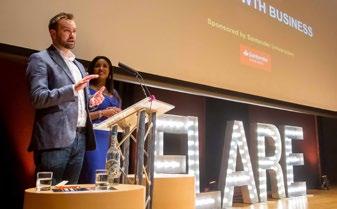
One of the ways we support start-ups is through our start-up challenge award - Flare Ignite. It offers student entrepreneurs the support, advice and training they need in areas like proposal writing, planning, finance and marketing, and the opportunity to win up to £3,500 to get their business idea off the ground and bring it to life.
Scan or click below to find out how our enterprise team can help you go.herts.ac.uk/ enterprise-zone


Kim won the 2021 Flare Ignite Social Impact award. She is a budding entrepreneur who wants to improve the lives of families with children who have special educational needs and disabilities (SEND).
“ What I learnt as a student has provided the foundations for my career and I will always be grateful for the University’s support throughout my studies. It’s because of this support that I felt confident and comfortable enough to enter the Flare Ignite competition as a graduate and challenge myself to make SENDplan a reality. ”
Scan or click below to hear more about Kim's SEND plan go.herts.ac.uk/kim
We offer expertise in apprenticeships. Apprenticeships play a crucial role in boosting the economy and are an effective way for businesses to develop a motivated, skilled, and qualified workforce, either by upskilling existing employees or recruiting new talent. The apprentice will gain a recognised qualification while earning a salary and gaining relevant industry experience.
14 Powering Potential
Global engagement
We provide international opportunities for staff and students, building a diverse community on our campus, and increasing flexible programme delivery for the overseas market.
With more than 100 international partnerships across five regions, and partnership models including franchise, dual awards, fly-in faculty, academic support, supported distance learning and recognition and articulation agreements, we are passionate about providing students around the world the opportunity to study for a University of Hertfordshire award.
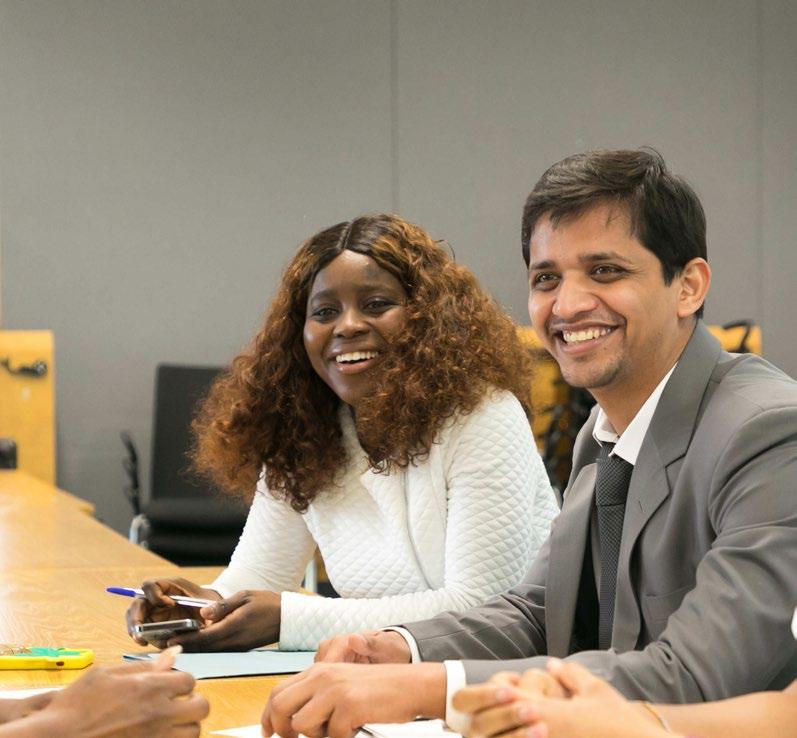
We are proud to be a participant of the QE-TNE scheme. The scheme independently measures quality across the UK’s Transnational Education sector and promotes continued evaluation, improvement, and collaboration on a global scale.
In 2019 we launched our largest scale transnational education partnership with a new institution, Global Academic Foundation in Egypt. Students can study a University degree in multiple subject areas, including Business, Computer Science, Engineering, Mass Communications, Pharmaceutical Science and Physiotherapy. Located in the centre of Egypt’s new administrative capital New Capital City, 20km east of Cairo, our campus is one of the first institutions to open in New Capital – a purpose-built capital city the size of Singapore.
Scan or click below to find out more about our international partners go.herts.ac.uk/partners

15
School of Health and Social Work
Centre for Research in Public Health and Community Care (CRIPACC)
Subject areas Adult Nursing
Children’s Nursing Diagnostic Radiography Learning Disabilities Nursing Mental Health Nursing Midwifery
Occupational Therapy Paramedic Science
Physiotherapy
Primary Care (Specialist Community Nursing and Specialist
Community Public Health Nursing)
Radiotherapy and Oncology
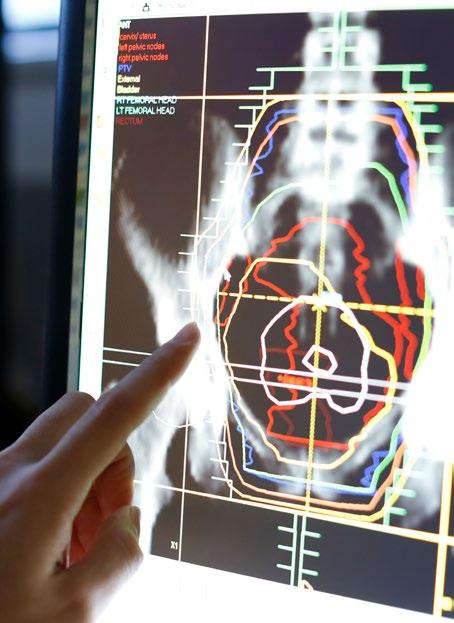
Social Work
Our School is committed to unlocking the potential of each individual student, to provide them with the skills to go into the world to improve lives – to do things that really make a difference. We are partners in their journey, working to ensure their learning experience is the very best that it can be.
Professor Jackie Kelly Dean of the School of Health and Social Work

16 Powering Potential
The School of Health and Social Work delivers innovation and excellence across a diverse range of health and social care education and research, positively impacting on our local, national and international communities. Our strong industry partnerships keep us at the cutting edge of health and social care and our practice partners offer excellent student placement experiences. Together, we transform the lives of our students, enabling them to graduate with confidence into the workforce, applying their skills and expertise to improve lives and safeguard futures for all.
The School consists of two academic departments and an internationally renowned research centre. We have more than 5,000 students and through our evidence-based teaching we support and create opportunities to build our students’ confidence and develop their skills in their chosen profession. We offer courses across undergraduate, postgraduate and research degree level, as well as continuing professional development for those wishing to enhance their skills, further advancing their careers.

We are ranked 2nd for Social Work in the Guardian University Guide 2022
We are in the top 5 in the UK for Paramedic Science according to the Complete University Guide 2023
17
Our graduates have received British Empire Medals for work on the frontline during the pandemic, and services to humanitarian work
Our experts are changing lives
Michael specialises in the teaching of children and young people’s public health nursing and is motivated by maximising the student experience and the translation of knowledge and evidence into health visiting and School nursing practice and policy. His research interests identify knowledge and evidence needs for contemporary public health practice as well as policy and practice responses to ethically challenging social issues.
PhD, PGDip, PGCert, BSc (Hons), RN(Adult), SCPHN(HV), FHEA
Michael was a co-investigator on a qualitative research project gaining insight into food, nutrition and diet practices in the maternal and early years period. He has also co-edited a book entitled ‘Digital Connections in Health and Social Work: Perspectives from Covid-19’ (2022, Critical Publishing Ltd), that presented 13 case studies of various experiences from health and social work educators, leaders, practitioners and students during the Covid-19 pandemic.

Dr Jennifer Lynch

PhD, MA, MSc, PG Cert. Advanced Research Methods, BA (Hons)
Jennifer is a Reader in Social Care Technology and Knowledge Mobilisation with a background in adult social care commissioning. She has an overarching research interest in social care and community-based health and wellbeing provision, with a particular focus on technologyenabled care. She is a recent NIHR Knowledge Mobilisation Research Fellow (2018-21) working with local authorities as they embed assistive technology into their social care offer and tackle challenges of scale-up, spread and sustainability. Her research is concerned with developing knowledge mobilisation capacity by considering how different forms of evidence and diverse perspectives can be brought together to catalyse change in complex health and care systems.
Scan or click on the link below to find out more about Jennifer’s research go.herts.ac.uk/jennifer
Professor Daksha Trivedi

BSc (Hons), MSc, PhD (Lon), MPhil (Cantab)
Daksha is a Professor of Applied Health Research. She trained as a scientist and has an interest and expertise in Mixed Methods, Clinical Trials, Complex interventions and Evidence Based Practice. She is the University’s lead for the Mental Health Over the Life Course Theme, National Institute for Health and Care Research (NIHR) Applied Research Collaboration (ARC), East of England, and has led NIHR funded research across various public health areas.
She is an Editor for the Cochrane Injuries Group, Associate Editor for Primary Health Care Research and Development, and member of the NIHR Research Patient Benefit Regional Advisory Committee. Daksha is a Co-chair of the Hertfordshire Public Health Connect Strategy Group and is leading various NIHR ARC related projects addressing health inequalities.
Scan here or click on the link below to find out more about our research expertise go.herts.ac.uk/herts-research


18 Powering Potential
Dr Michael Fanner
Continued investment in teaching and learning facilities
Simulation is an essential component of our healthcare programmes where students can practice true to life procedures, skills, and scenarios in a realistic yet completely safe environment. We have first class facilities in our physiotherapy and paramedic skills laboratories, radiography labs, CT scanner, ultrasound labs and activities of daily living areas for occupational therapy.
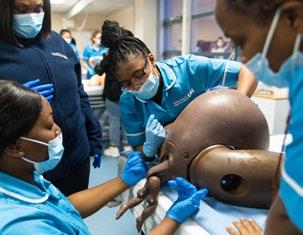
In our nursing and midwifery simulation centre the maternity room is fully equipped for water birthing and home births, and there is a hospital delivery suite with manikins capable of simulating challenging deliveries and emergency procedures. Within our neonatal care setting there are baby manikins supported by fully equipped hospital incubators.
High-definition video recordings using Smots™ technology give students real time feedback on their performance. Virtual reality headsets immerse students in a hospital setting where they interact with artificial intelligence driven patients and clinicians. We are currently working with Oxford Simulation to deliver new and innovative ways of learning.
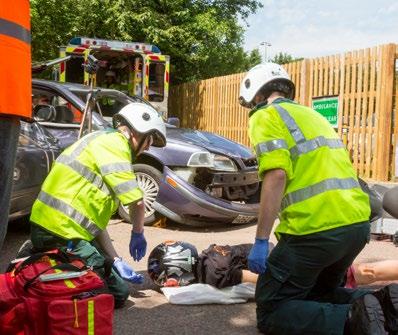

Scan or click on the link below to view our amazing facilities go.herts.ac.uk/ hsk-facilities

19
Research
Enhancing research capacity in adult social care in the East of England
Over one million adults in the UK receive personal and practical care and assistance from social care for a wide range of reasons, including critical support for age-related issues, health conditions, and disabilities. In partnership with Hertfordshire County Council and Norfolk County Council, our researchers will establish four new Social Care Research in Practice Teams (RiPTs). The team members will receive funding to enhance their research skills and confidence, and to design and implement new research projects to advance social care in the region.
Supporting person-centred care for people with dementia in hospital settings
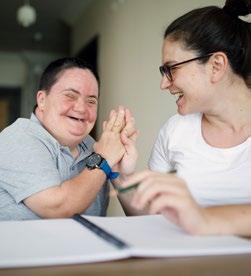
Approximately 40% of older people admitted to hospital have dementia. People with dementia who need to stay in hospital must be treated with dignity and understanding as they are often not able to articulate important information about their symptoms, or how they feel.
The purpose of the project is to design an intervention to make constant observations in hospitals more person-centred, ensuring that dementia patients are treated with dignity and receive the best care possible.
Beyond Words: Co-creation and evaluation of a resource to support Covid-19 vaccine uptake in people with intellectual disabilities
Public Health England reported that individuals with learning disabilities are up to six times more likely to die from Covid-19, so empowering this group of people to get a vaccine is essential. People with learning disabilities are significantly impacted by health inequalities and recent data regarding the impact of Covid-19 has highlighted the increased vulnerabilities of this group.
The aim of this project was to develop a picture book, working with Beyond Words, for people with learning disabilities that explains in pictures about having the coronavirus injection.
Public Health Intervention Responsive Studies Teams
Our team of researchers who make up one of the six National Institute for Health and Care Research (NIHR) Public Health Intervention Responsive Studies Team (PHIRST) are working in partnership with local authorities to carry out evaluation research with the aim of improving public health. By having these established teams in place, the NIHR can drive timely evaluations of important public health services.
20 Powering Potential
Future research
To complement the established research programmes within our Centre for Research in Public Health and Community Care, we have launched two new research units that aim to become research centres within the next 5-10 years.
The Musculoskeletal Research Unit (MSK-RU), led by Dr Catherine Minns Lowe, collaborates with other research groups nationally and internationally to produce high quality research. Their research involves people living with musculoskeletal conditions. They also support clinicians who are keen to become active researchers and NHS Trusts and groups to evaluate and improve care.
The Paramedic Clinical Research Unit (ParaCRU), led by Professor Julia Williams, aims to build research capacity and capability among paramedics to empower the profession to influence changes in service delivery, patient care and management as well as patients’ clinical outcomes in the years ahead.
Research Degrees in Health
Our postgraduate research programmes capitalise on interest and need for high quality health and care research with our NHS and local authority partners.
Our programmes include two professional doctorates, the Doctorate in Public Health (DrPH) and the Doctorate in Health and Social Care (DHaSC), as well as a vibrant PhD programme across all professions and disciplines within the school.
These innovative programmes enable UK-based and international senior clinicians, managers and public health specialists to undertake postgraduate research supervised by our multi-disciplinary teams.
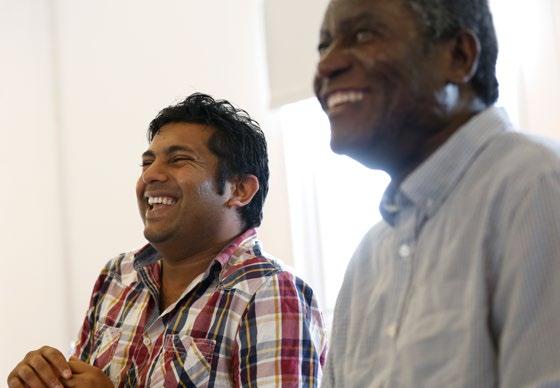
21
Williams PhD, BSc (Hons), FCPara, FEA Associate Dean of Research
Centre for Research in Public Health and Community Care (CRIPACC)
CRIPACC is an internationally renowned multidisciplinary research centre focused on producing research that makes a difference to people’s lives by improving the quality of health and social care services and promoting health and wellbeing. Our key areas of research activity include:
∙ Communities, Young People and Family Lives
∙ Older People’s Health and Complex Conditions Patient Experience and Public Involvement
National Institute of Health and Care Research (NIHR) Applied Research Collaboration (ARCs)
The University leads three research themes of the National Institute of Health and Care Research (NIHR) ARC for the East of England. ARCs are funded to support applied health and care research that responds to the needs of local populations and local health and care systems. CRIPACC is leading on the following three research themes:
Ageing and multi-morbidity: Led by Professor Kathryn Almack Prevention and early detection in health and social care: Led by Dr Claire Thompson
∙
Inclusive involvement in research for practice led health and social care: Led by Dr Elspeth Mathie from the University and Professor Fiona Poland from the University of East Anglia
Julia is Professor and Research Lead for Paramedic Science and Associate Dean of School (Research).
She has extensive experience of undertaking research in a variety of healthcare settings. She is also involved in the development and delivery of higher education courses both for already qualified paramedics and also for students on pre-registration paramedic science programmes.
Julia also works with South East Coast Ambulance Service NHS Foundation Trust where she undertakes clinical research as well as clinical practice as a paramedic, which she considers essential to enhance the currency of her clinical research as well as her teaching.
As Head of Research for the College of Paramedics (UK), she is committed to increasing the capacity and capability of paramedics within clinical research.
Wendy is Professor of Food and Public Health, and Director of CRIPACC. Her research focuses on the socio-economic determinants of health and wellbeing particularly in relation to obesity, food practices and malnutrition; she has a particular interest in how inequalities are experienced by different population groups.
Wendy Wills PhD, MSc, BSc (Hons), SFHEA, RNutr (Public Health)

Wendy has recently been appointed as the Director of the NIHR ARC for the East of England, having previously led their Prevention and Early Detection in Health and Social Care (PEDHSC) theme. She was also joint Chief Investigator for the NIHR Public Health Intervention Responsive Studies Team (PHIRST).

22 Powering Potential
Professor Julia
Professor
Our inspiring alumni
Jess is the clinical lead for respiratory physiotherapy at Whittington Health NHS Trust and co-led the Continuous Positive Airway Pressure services for Covid patients. She has been awarded a British Empire Medal (BEM) for her work at the hospital on the frontline of the pandemic.
“ I am beyond grateful and overwhelmed to have been awarded a BEM. Although it was an extremely difficult time and we all worked in ways we could never have imagined, I am immensely proud of all of the therapy department who provided the best care we could for our patients. ”
Becky is an Advanced Clinical Practitioner at the Royal London Hospital, with more than 23 years nursing experience. She is a recipient of the British Empire Medal (BEM) for Services to Humanitarian Response.


She was a key team member in the UK Emergency Medical Team’s response to the diphtheria outbreak in Bangladesh in 2017 and the measles outbreak in Samoa in 2019.
Becky is currently deployed in Ukraine with UK-Med to provide medical help to the thousands of displaced refugees.
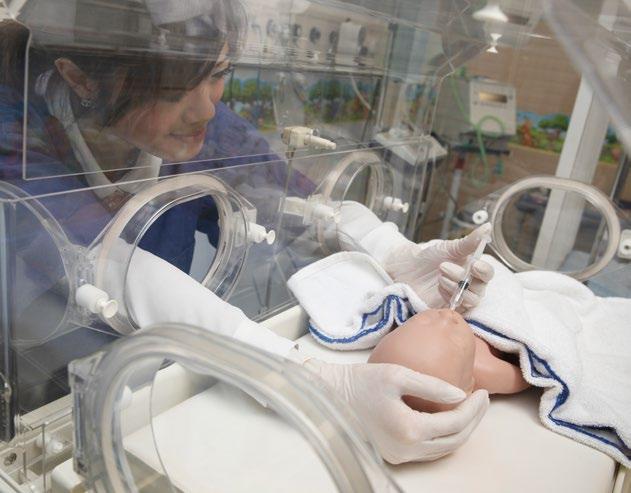
23
Jess Horne BSc (Hons) Physiotherapy, 2013
Becky Platt
MSc Contemporary Nursing, 2020
Future aspirations
Our focus is to respond to the many healthcare challenges through the development of new programmes and investment in the latest technological innovations. This year we intend to: ∙ enhance and develop the research rich environment in CRIPACC, across the Departments and within the Research Units ∙ introduce RN Degree Apprenticeship top-ups; further develop advanced clinical practice and enhance our CPD offer in line with service needs ∙ explore the potential for developing new programmes within the International franchise Global Academic Foundation initiative ∙ develop new pre-registration MSc programme pathways following recent developments in Physiotherapy and Radiography

24 Powering Potential
Prioritising inclusivity
Our school is committed to building a positive inclusive culture, creating a community based on dignity and respect, across academia for all students and staff. Through the work of the school’s Equality, Wellbeing and Inclusivity Committee we are committed to embedding fairness, ensuring our students and staff have a voice and feel empowered to be successful. We are proud of our Athena SWAN Silver status, confirmed in 2018, which acknowledges our ongoing commitment to gender equality.
Responding to business needs
Apprenticeships
We are committed to working with and supporting businesses through our health and social care apprenticeships. Our most recent programmes are:
∙ MSc Physiotherapy pre-registration MSc Radiography pre-registration
∙ Nursing Associate Higher Apprenticeship
∙ Occupational Therapy degree apprenticeship programme Degree Apprenticeship in Learning Disability Nursing
∙ Apprenticeship pathway for the MSc Advanced Clinical Practice
Public involvement
Our school is proud of its work and commitment in this area, through its well-established Public Involvement in Research group (PIRg) and its Service User and Public Involvement (SUPI) panel. These groups employ experts by experience to ensure our research and teaching are developed, shared and co produced remaining relevant to population needs.
Generation R young people improving research
YPAGs (Young People’s Advisory Groups) have been set up to ensure that children, young people and families are actively involved in the design and delivery of clinical research. The University’s YPAG is led by Dr Louca-Mai Brady, Senior Research Fellow. Louca-Mai’s research interests include research with children and young people, public involvement, young people’s participation in health and social care research and services and qualitative and participative research methods.
Honorary Visiting Professors
The strength in our partnerships with our health and care stakeholders plays a critical role in our success. The sharing of information, practice and research makes a significant impact on the health and wellbeing of our communities. This is recognised through our collaborations with our Honorary Visiting Professors, including: Professor Jim McManus, Director of Public Health for Hertfordshire through Hertfordshire Public Health Connect; Professor Oliver Shanley OBE, and Professor Chris Goddard, Adjunct Research Professor, Education Futures Unit, University of South Australia, Member of the Advisory Board for the International Journal of Children's Rights and Editorial Consultant for Children Australia.
25
HS1297HSW/DS/0422 University of Hertfordshire Hatfield, UK AL10 9AB +44 (0)1707 284000 herts.ac.uk /uniofherts @UniofHerts @UniofHerts














































